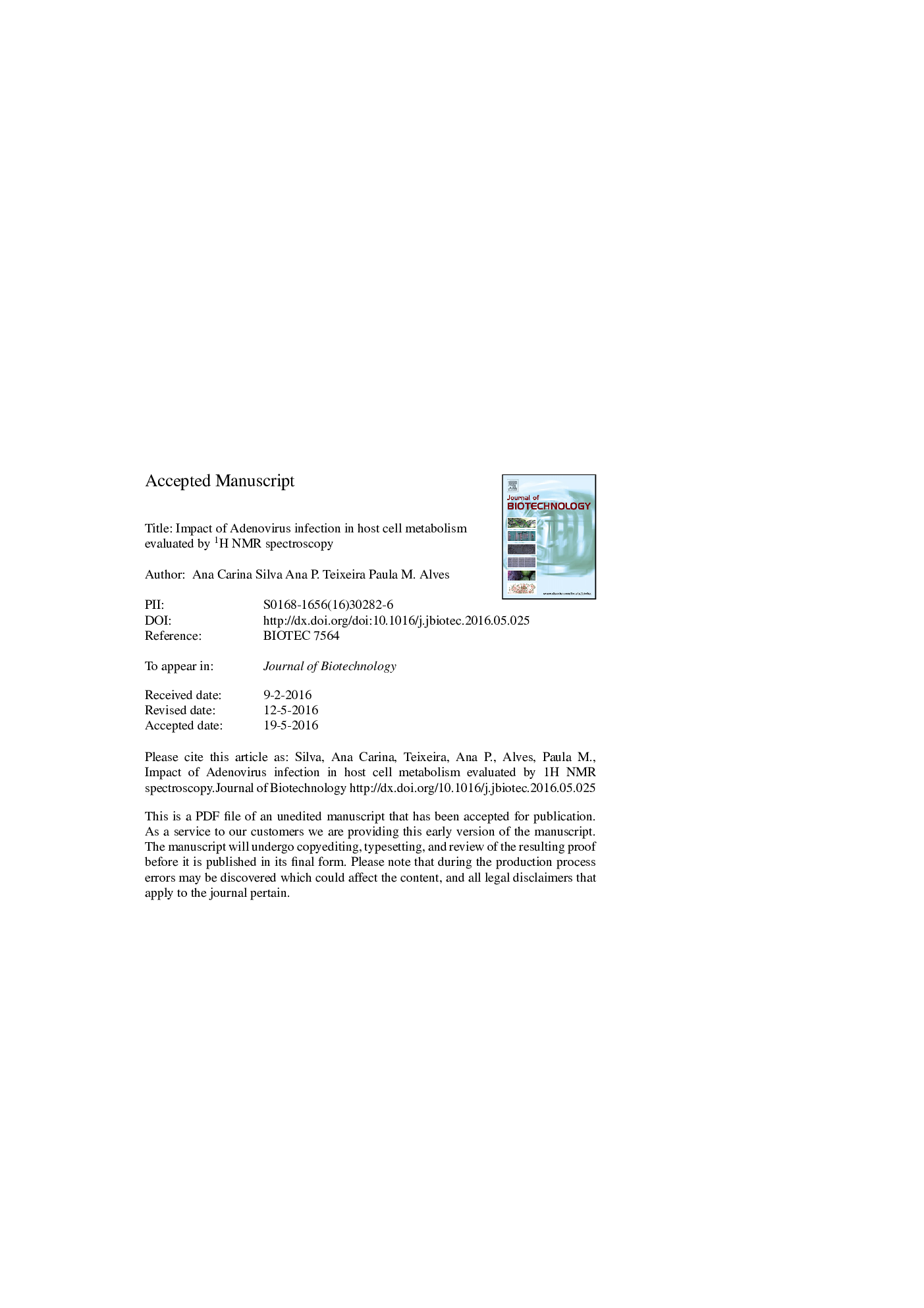| Article ID | Journal | Published Year | Pages | File Type |
|---|---|---|---|---|
| 22666 | Journal of Biotechnology | 2016 | 26 Pages |
Abstract
Adenovirus-based vectors are powerful vehicles for gene transfer applications in vaccination and gene therapy. Although highly exploited in the clinical setting, key aspects of the adenovirus biology are still not well understood, in particular the subversion of host cell metabolism during viral infection and replication. The aim of this work was to gain insights on the metabolism of two human cell lines (HEK293 and an amniocyte-derived cell line, 1G3) after infection with an adenovirus serotype 5 vector (AdV5). In order to profile metabolic alterations, we used 1H-NMR spectroscopy, which allowed the quantification of 35 metabolites in cell culture supernatants with low sample preparation and in a relatively short time. Significant differences between both cell lines in non-infected cultures were identified, namely in glutamine and acetate metabolism, as well as by-product secretion. The main response to AdV5 infection was an increase in glucose consumption and lactate production rates. Moreover, cultures performed with or without glutamine supplementation confirmed the exhaustion of this amino acid as one of the main causes of lower AdV5 production at high cell densities (10- and 1.5-fold less specific yields in HEK293 and 1G3 cells, respectively), and highlighted different degrees of glutamine dependency of adenovirus replication in each cell line. The observed metabolic alterations associated with AdV5 infection and specificity of the host cell line can be useful for targeted bioprocess optimization.
Related Topics
Physical Sciences and Engineering
Chemical Engineering
Bioengineering
Authors
Ana Carina Silva, Ana P. Teixeira, Paula M. Alves,
